Biden should have cancelled Albanese’s visit amid global turmoil, but we are too important
A Labor Prime Minister, ostensibly from the Left of his party, has waxed lyrical about the virtues of the US in a way that wouldn’t have been imaginable a generation ago.
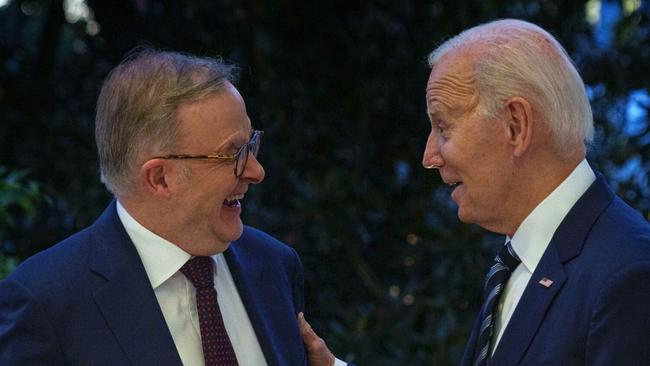
The details of the $5bn announced for cyber security by Microsoft or the extra $6bn for the mining of critical minerals are largely irrelevant, a mere political requirement of a state visit.
The round nominal figures were chosen to make it easy for readers to comprehend.
What matters is that a Labor Prime Minister, ostensibly from the Left of his party, waxed lyrical about the virtues of the US in a way that wouldn’t have been imaginable a generation ago, as Paul Keating’s recent interjections have reminded us.
“I stand with you here in Washington DC is to witness the power of America’s example,” Mr Albanese said.
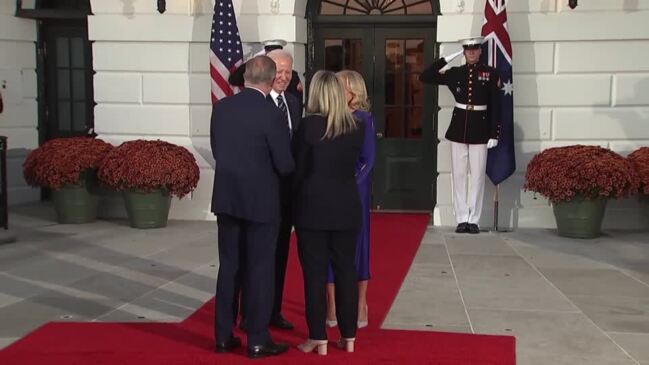
Pockets of disquiet within Labor over the landmark AUKUS security pact were notable for their impotence.
This geopolitical whiplash reflects the dramatic change in power dynamics throughout the world. China is far more powerful than Japan ever was. Russia, China, Iran, among others, no longer fear the US as they once did. The US has nowhere near the dominance it had in the immediate post-war order.
The US, for all its power, economic, military and cultural, is struggling to police the world. To sustain the American century, the US needs “allies and partners”, and Australia, with its vast mineral resources, is foremost among them.
For the first time since the Cold War, nations are being compelled to choose sides; national agency has become a myth, as it always was.
When John Curtin in 1941 famously looked to the US free from the pangs of attachment to Great Britain, it was an act of understandable desperation and opportunism. Australia was still very much British.
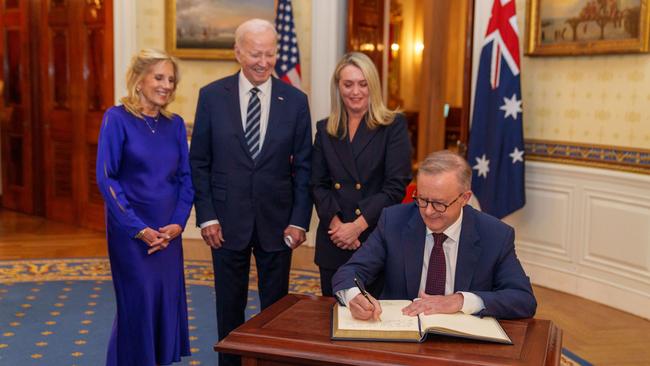
The Australia-US relationship today is fundamentally different; it’s deeper and profound, extending far beyond military co-operation to space exploration, energy, and resources.
Australia has irreversibly hitched its future prosperity to that of the US.
Such comity has costs and benefits: the government cannot persuade Washington to repatriate its own citizen, Julian Assange, who broke no Australian or British law, but it enjoys US military protection.
Australia’s freedom of manoeuvre wasn’t what it once was, as Canberra’s foreign policy invariably tracks that of Washington on major issues, perhaps by not a coincidence.
Becoming entrenched under the US umbrella should elicit no shame: the US is the finest embodiment of enlightenment ideas, but it’s not a prison. It’s not a done deal that continues.
The growing closeness between Australia and the US should not be a reason to jettison our traditional values of the rule of law and free speech.
We’re not impotent.
The US needs Australia, too. The pressure to “beat” China economically will be tricky, given it is home to more than 300 million people.
The Biden administration could have cancelled the Prime Minister’s visit to Washington given the turmoil in the Middle East and Ukraine, but it didn’t because of Canberra’s obvious importance.
The bottom line is it may well be that Australia can be part of the US defence umbrella but it need not be so servile in pursuit.


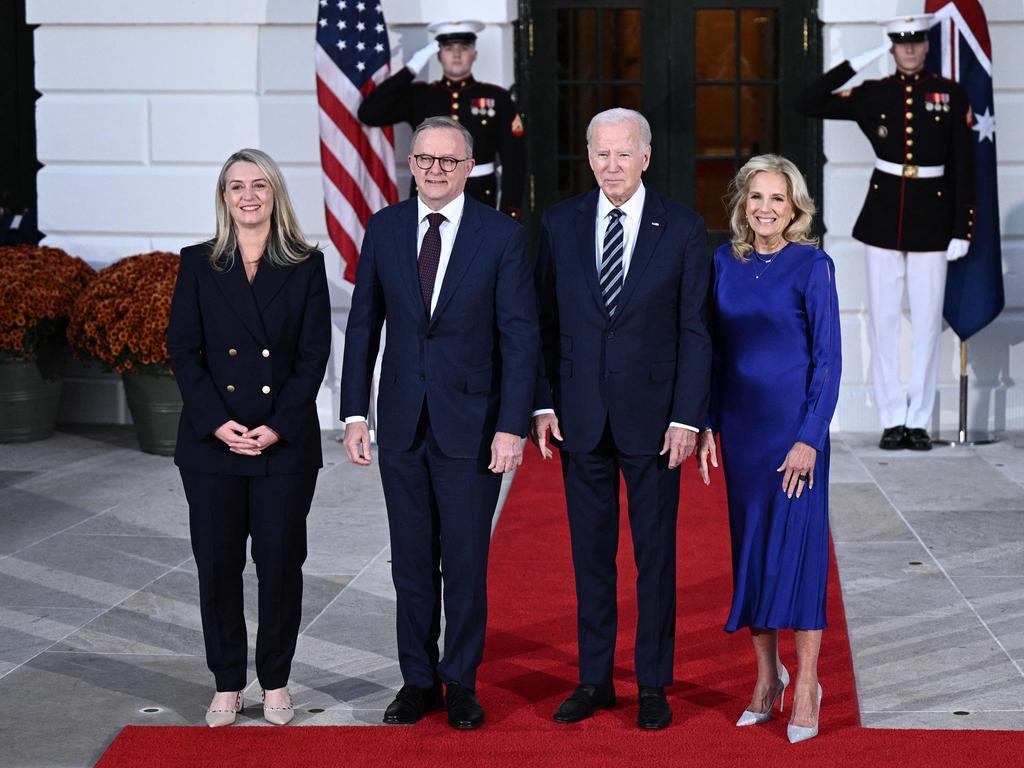
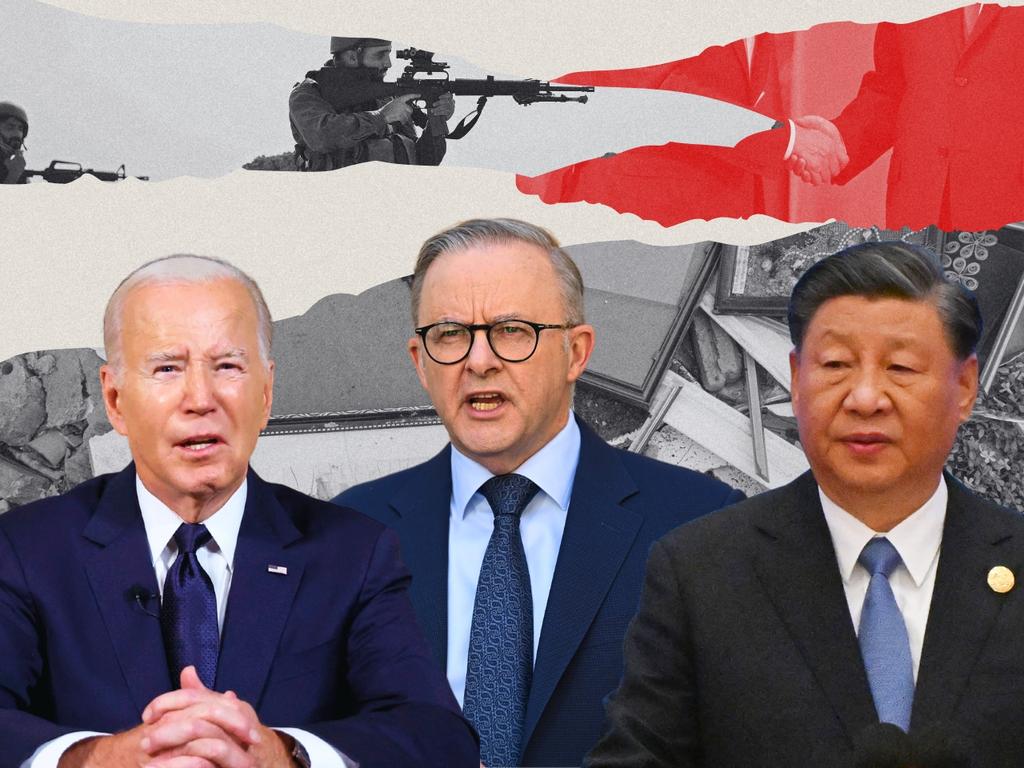
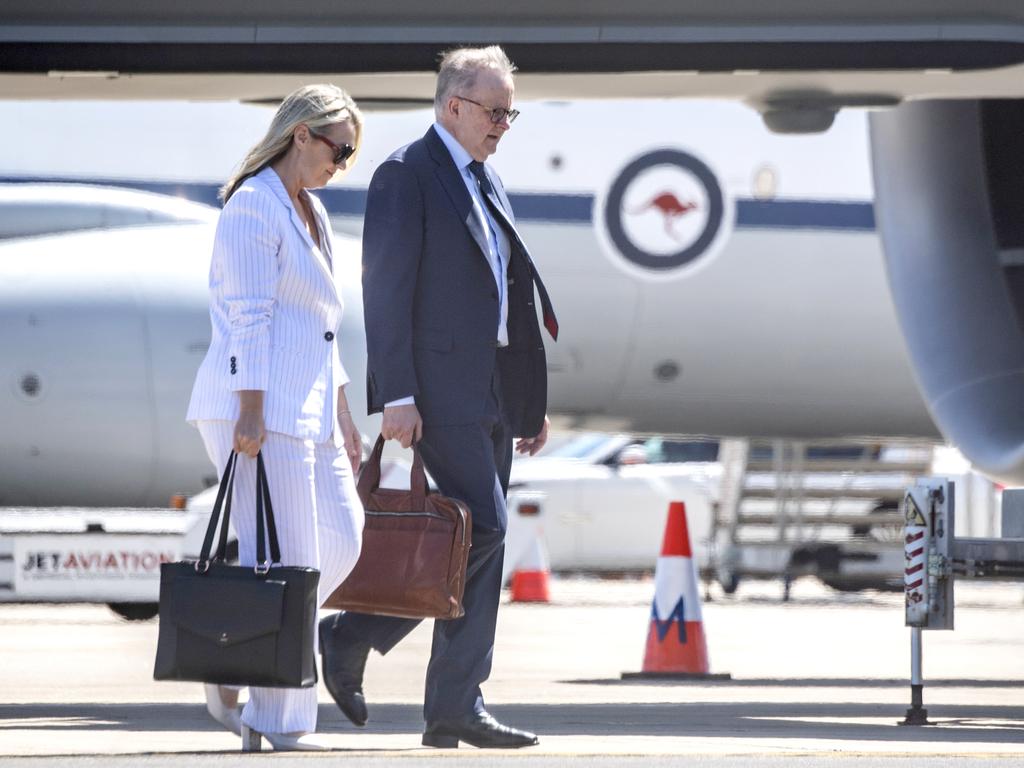


The significance of Anthony Albanese’s address on the south lawn of the White House on Wednesday (Thursday AEDT) can’t be understated.